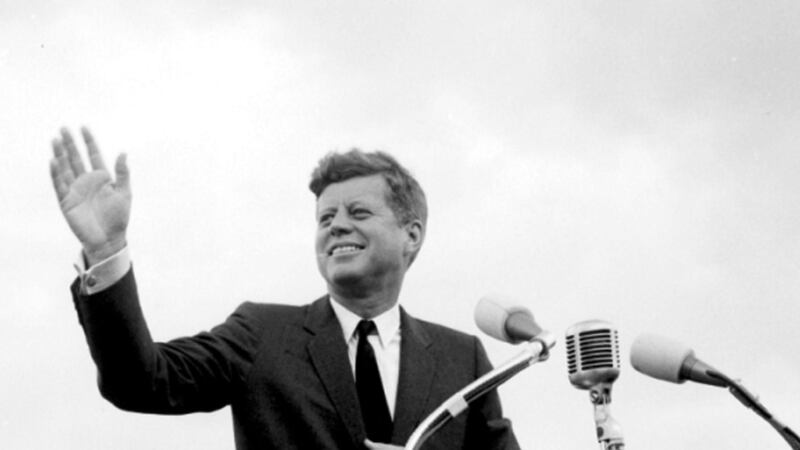AS a divided island, we have a good deal in common with Cyprus, although we shiver in the chilly North Atlantic while they nestle in the sunny Mediterranean.
Cypriot president Nicos Anastasiades was in Dublin last week and, in an address to the Institute of International and European Affairs, he spoke about the challenges Brexit has generated for his country, which was formerly part of the British Empire and continues to have close contact with the UK.
However, there is little likelihood of Cyprus following the British example by quitting the EU, and the president said: “The European Union is the greatest example of pooling sovereignty at global level.”
The thought occurred to me that, since the British have decided to stop pooling sovereignty with the other member-states and to branch out on their own, perhaps it is time for the Irish state, without reducing its own sovereignty, to consider forging some new link to replace the bond created by our common membership of the European Union.
Whatever the plusses and minuses of EU membership, the British-Irish relationship certainly benefited and the friendship that developed between Albert Reynolds and John Major, for example, was critically important to the peace process.
It won’t be good for either state to be operating in different spheres. The British are reminiscent of some old classmate who formerly dominated the schoolyard but has now retreated into a strange, introverted world, constantly repeating the mantra associated with film legend Greta Garbo: “I want to be alone.”
This is serious, folks: we’ve got to save the British, or perhaps I should just say the English, from themselves.
It can’t be easy to go from being cock of the walk, strutting around an empire on which the sun never sets, to becoming a secondary power and lapdog of the Americans who drag you into a misguided venture like the invasion of Iraq with truly disastrous consequences.
There’s not much a small state like the Irish one can do but, as the saying goes, every little helps.
My own personal recommendation, now that the EU link is nearly gone, would be for Dublin to approach London about renewing a connection of some kind with the Commonwealth, but without any loss of sovereignty on the Irish side.
A total of 32 out of the 52 Commonwealth states are republics, including such robust entities as India and South Africa, not to mention the Republic of Cyprus itself.
Although the British monarch is nominal head of the organisation, she has no powers of governance over the members and her role is purely symbolic.
Whatever criticisms might be made of Eamon de Valera, he did a great deal to extend and expand the sovereignty of the Irish state, notably through the maintenance of neutrality during World War Two.
But he was never keen on leaving the Commonwealth, as he feared it would drive a further wedge between nationalists and unionists.
Eventually it came about under a different government in 1949 but critics such as former taoiseach Bertie Ahern would say this was done in a clumsy fashion and, as he put it 50 years after the event: “What de Valera regarded as a potential bridge was pulled down.”
Making a move to go back in at this stage to recreate some kind of link would have two positive results.
First, it would hopefully provide reassurance to unionists, making them more comfortable with the peace process and less hostile to the concept of Irish unity sometime in the future.
Secondly and perhaps more important in the short term, it would help repair the gap in the British-Irish relationship that Brexit has opened.
When John F Kennedy made that historic visit to Ireland in June 1963, the folklore tells us then-President de Valera advised him that, in the conduct of relations with the British, it was necessary to throw “an occasional bomb into one of their lorries”.
If he really did say this, you have to suspect Dev was milking his reputation as “sole surviving commandant” from the1916 Rising, because he certainly did not behave like that towards the British during his years as Taoiseach from 1932 onwards.
If he were around now he would no doubt be telling us that the bomb-and-bullet approach is no longer relevant and the task facing republicans is to persuade unionists that Irish unity is the way forward.
Dev was generally very clever and constructive although he could still deliver a rebuff to the old colonial master, as seen in his famous reply to Churchill’s attack on Irish neutrality in 1945.
In the present situation opening a channel of communication with the Commonwealth on the basis of total sovereignty would appeal to him.
Throwing a lifeline to the British would doubtless make him smile.
@ddebreadun








